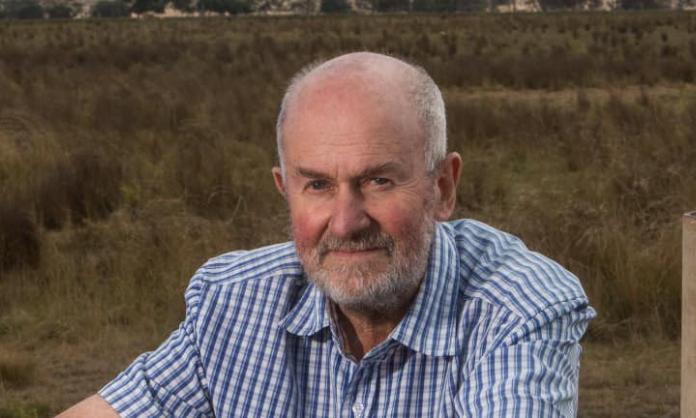Harry van Moorst, one of the most prominent leaders of the student revolt that swept the campuses in the late 1960s and early 1970s, has sadly died at the age of just 75.
It is often said by right-wing cynics that student radicalism is just a passing phase; that the radicals inevitably grow up and embrace middle class respectability and become Labor MPs or highly-paid lawyers.
Some prominent leaders of the sixties revolt did unfortunately sell out. But Harry van Moorst definitely was not one of them. He remained a fighter, a campaigner and a committed socialist until his dying day.
My abiding memory of Harry is from the massive Moratorium march against the Vietnam War in May 1970, for which he was one of the main organisers. I had come over with a group of students from my Melbourne Uni chemistry prac to the assembly point of the huge student and staff contingent, where Harry was in his element briefing us all on the plans for the day.
There was a mood of incredible excitement and tension in the air. The press had gone ballistic for weeks warning of absolute mayhem and the destruction of all civilised values if the march went ahead. The shops along Bourke Street had all been boarded up against the supposed mass riots that were coming.
Harry explained that unlike the riotous 4 July demos at the US consulate, this was intended to be a mass peaceful march aimed at winning widespread popular support for the anti-war cause. This did not go down entirely well with my fellow chemistry students who were keen to “throw rocks at the cops”, an approach for which I had some sympathy.
But Harry’s orientation for the day proved to be correct politically. The 100,000 strong Moratorium march was a tremendous success. When the student contingent reached Bourke St and linked up with the mass worker contingent marching up from the wharves, a tremendous cry went up. It seemed our dreams of a worker/student alliance were being fulfilled. Everything was possible!
One of my last conversations with Harry was precisely about organising a 50th anniversary celebration of the Moratorium march at the 2020 Marxism conference. Both events sadly had to be cancelled because of the COVID-19 pandemic.
Harry was the son of Dutch migrant working class parents from the La Trobe Valley—seemingly a fish out of water in those days at the ever-so-elite Melbourne University. But he soon made his mark. In 1968, he was one of the founders of Students for a Democratic Society (SDS) which focused on campaigning against conscription for the Vietnam War. He subsequently became active in the Draft Resister Union.
He played a leading role in innumerable actions against the war and in organising campus occupations. One of the most spectacular and successful was the turning of the Melbourne University Student Union building into a sanctuary for draft resisters. The cops got incredible egg on their face when, after smashing their way into the building, they were unable to find the carefully secreted away draft resisters.
Harry was not simply a single-issue campaigner. Reflecting his broader socialist politics, he campaigned around all the issues of the day. In May 1974, he led an occupation of the Melbourne University Council chamber demanding the university provide child care facilities.
In his SDS days Harry was somewhat pacifist inclined but he subsequently joined or was very close to the Maoists for a period. In the mid-1970s, he was involved in the campaigns to defend Medibank against the Fraser government’s attacks, and to oppose the construction of a highly polluting power station in the centre of the working-class suburb of Newport.
In the early 1980s, he threw himself into agitation against sharply rising unemployment. The high point of which was the riot that stormed the ultra-exclusive Melbourne Club in Collins Street.
In more recent years, Harry has been centrally involved in the Western Region Environment Centre, fighting against environmental destruction in the working-class western suburbs. For Harry defending the environment was always a working-class cause.
Amongst all this activism Harry was readily available to speak at innumerable left-wing events and did a number of meetings over the years for Socialist Alternative, making the case for socialism to a new generation.
March on Harry.









